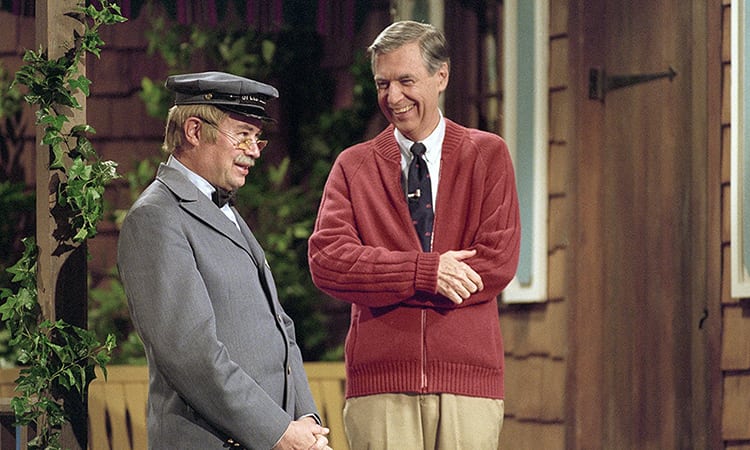We live in a divided country. Discourse and empathy are in short supply, and a majority of the figures we collectively looked up to have proven to be problematic (or far worse). Who do we turn to in these troubled times? How do we heal these disunited states? Unfortunately, watching a movie isn’t going to fill the systemic fissures that were built into America’s framework. However, a viewing of “Won’t You Be My Neighbor?” could point you in the right direction.
If you couldn’t already tell from the title, “Won’t You Be My Neighbor?” is a documentary about one of the most remarkable people to ever grace the television: Mr. Rogers. If you agree that Fred Rogers is one of the most remarkable people to ever grace the television, this movie is for you. If you think that’s hyperbole, this movie is definitely for you.

It’s difficult to review “Won’t You Be My Neighbor?” from a critical standpoint—much of the movie’s draw comes not from the filmmaking prowess, but from its subject. The best thing this documentary could do from a technical standpoint is facilitate a journey through Mr. Rogers’ life and passions without feeling mundane, and that it does quite naturally. It’s paced like a dream, shot unobtrusively, and uses animation to thread Rogers’ style into its own. Like a three-course meal comprised of desserts and delivered by chefs who compliment you, it’s something you need at any time.
If the film has one fault, it’s that it spends too little time on Fred’s one fault. At one point, the movie coyly suggests that Rogers had a bit of a control problem when it came to running his show. But as soon as this crack in his character is alluded to, the topic vanishes like it was taboo. One could accuse the movie of selectively leaving out the man’s bad side, but truth be told, there’s not enough of it to build a scene.
Mr. Rogers was an extraordinary man, and if you didn’t grow up knowing that, “Won’t You Be My Neighbor?” is an excellent entry point. Fans and newcomers alike should bring a truckload of tissues: the ceaseless love of Mr. Rogers pours through every scene like a refreshing deluge of tenderness in a harsh, parched world.
One of his sons refers to him as “the second Christ”, and it’s easy to see from where that comparison was drawn. The movie’s picture of Fred Rogers’ faith is as restorative as the man’s love—his Christianity emphasized the inherent worth of all people, prompted radical inclusion, and focused on civil rights and social justice. It legitimizes the outcast, much like its founder. It’s a necessary take during a time in our country’s history when similar means are used to reach opposite ends.
“Won’t You Be My Neighbor?” is a deeply necessary film. One of its interview subjects, a young man working at The Fred Rogers Center, cannot help but smile whenever he speaks of Mr. Rogers—you’ll likely end up doing the same. It’s a movie that makes you feel special while taking insecurity and doubt seriously, and most of all, it shows us how to proliferate those feelings. Perhaps it’s time for us all to drop by the neighborhood.
★★★★½ (4.5/5)




